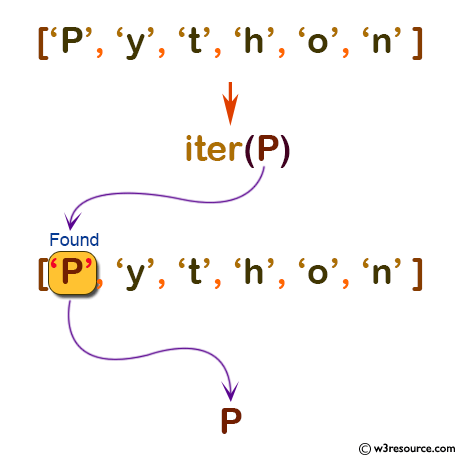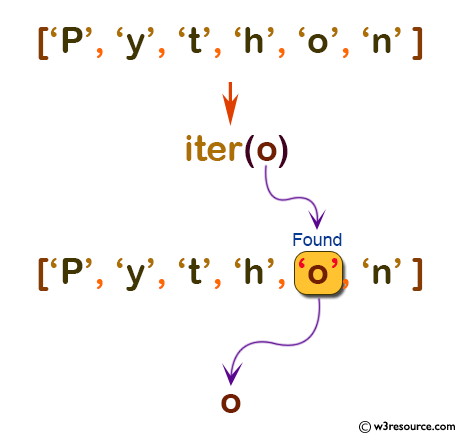Python: iter() function
iter() function
The iter() function returns an iterator object.
Version:
(Python 3.2.5)
Syntax:
iter(object[, sentinel])
Parameter:
| Name | Description | Required / Optional |
|---|---|---|
| object | An object whose iterator has to be created (can be sets, tuples, etc.) | Required |
| sentinel | special value that is used to represent the end of a sequence | Optional |
The following example reads a file until the readline() method returns an empty string:
with open('mydata.txt') as fp:
for line in iter(fp.readline, ''):
process_line(line)
Example: Python: iter() function
# list of letters
letters = ['P', 'y', 't', 'h', 'o', 'n']
lettersIter = iter(letters)
# prints 'P'
print(next(lettersIter))
# prints 'y'
print(next(lettersIter))
# prints 't'
print(next(lettersIter))
# prints 'h'
print(next(lettersIter))
# prints 'o'
print(next(lettersIter))
# prints 'n'
print(next(lettersIter))
Output:
P y t h o n
Pictorial Presentation:

Pictorial Presentation:

Python Code Editor:
Previous: issubclass()
Next: len()
Test your Python skills with w3resource's quiz
